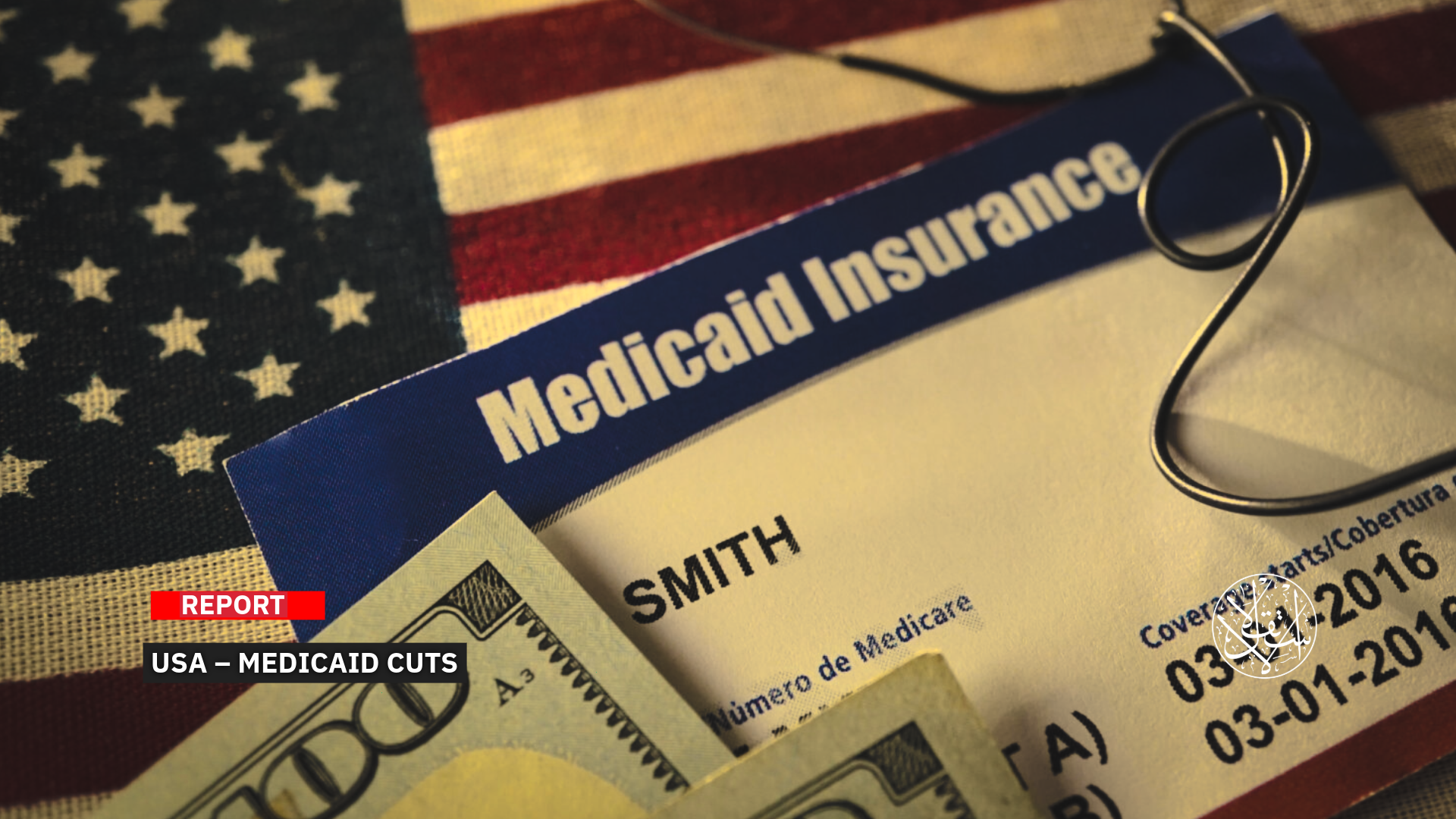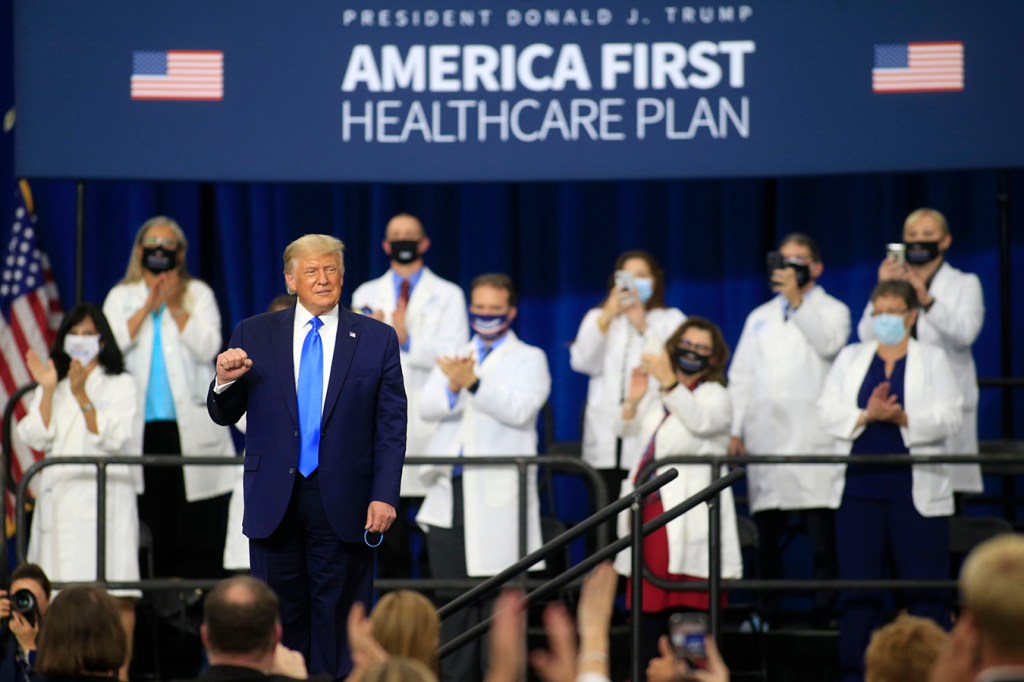How Trump's Spending Cuts Threaten Health Care Services for Millions of Americans

“Approximately 26 million people in the U.S. currently without health insurance.”
Public health provisions in the massive spending package recently signed into law by US President Donald Trump will cut Medicaid spending by nearly $1 trillion over a decade, resulting in an estimated 12 million people losing health insurance coverage.
Trump's new cuts have drawn widespread criticism from human rights organizations and Democrats, who argue that this policy threatens to deprive millions of Americans of essential health care services, representing the largest federal rollback of health insurance coverage in the country to date.
Researchers from Yale and the University of Pennsylvania predicted last June that the potential impact of the new law on health care services could cause approximately 51,000 additional deaths annually.
Trump defended his law during an interview with Fox News, claiming that it would not cause deaths but would keep people alive, even though it is estimated that millions would lose health insurance coverage.
Medicaid Cuts
On July 4, US President Donald Trump signed a sweeping bill that includes a massive package of tax cuts and spending cuts, along with unprecedented funding for national security programs and immigration policies, marking one of the most significant economic shifts of his second term.
Trump said the bill represents the largest tax cut in the nation's history, adding that it will preserve hundreds of billions of dollars and boost economic growth.
According to the Congressional Budget Office (CBO), the bill will reduce tax revenues by $4.5 trillion over ten years and cut spending by $1.1 trillion.
Although most Republicans promote the bill as a stimulus to businesses and prevent fraud, analysts consider it a surgical operation without anesthesia for the middle and lower-income classes.
Observers agree that the new bill will be a political flashpoint during the 2026 midterm elections, amid sharp divisions within the Republican Party itself.
Senator Thom Tillis of North Carolina announced his opposition to the law and will not run again, while Lisa Murkowski of Alaska described the legislation as immature and in need of immediate review.
According to Newsweek, nearly 71.4 million people are enrolled in Medicaid, a government health insurance program that provides free or low-cost coverage to eligible low-income individuals and families, including children, pregnant women, the elderly, and people with disabilities.
Republicans have long wanted to roll back expansions to Medicaid made by Democrats, especially those made by the Affordable Care Act (ACA).
They are seeking to cut Medicaid spending to pay for the extension of the 2017 Tax Cuts and Jobs Act, which is set to expire at the end of this year.
A CBO review found that Trump's big beautiful bill would increase the number of uninsured Americans by 11.8 million by 2034, due to new work requirements for beneficiaries under age 65 and reduced states' ability to fund health services through taxes on caregivers.
There are currently approximately 26 million people in the U.S. without health insurance.
Trump's bill will cut Medicaid funding by $930 billion over a decade and could lead to lower enrollment rates in the ACA.

Healthcare System
Trump's bill will change how states fund their share of the nearly 60-year-old Medicaid program by restricting the funding sources states use to support their health programs.
By 2027, states must establish work requirements requiring most Medicaid enrollees (ages 19 to 64) to work 80 hours per month, attend at least part-time school, or volunteer to maintain eligibility.
There are exceptions for parents or guardians of children under 14 and those with disabilities.
States will also be required to verify Medicaid eligibility every six months instead of annually.
This change will increase the risk of people losing coverage due to additional administrative procedures.
There are also proposed changes to the ACA, scheduled to take effect in 2026, that could result in an additional 5 million people losing coverage.
The automatic renewals will be eliminated, and applicants for insurance on the open market will be subject to more paperwork.
The greatest impact will be felt through the closure of rural health centers, due to the long-standing difficulties these centers face in maintaining their operations.
As a result, senators from both parties voted to allocate $50 billion over the next five years to the newly created Rural Health Development Program.
Rural areas are estimated to see a $155 billion cut in federal spending over ten years.
This means that the funding allocated by the Senate is not enough to offset cuts to Medicaid and other programs that would reduce the flow of funds to rural health facilities.
According to an analysis by researchers from the University of North Carolina, 338 hospitals are at risk of reducing critical services, converting to an alternative type of health care facility, or closing altogether as of June 2025.

Immoral Legislation
The CBO expected that states would need to modify their Medicaid programs by taking measures such as reducing provider payment rates, reducing the scope or amount of certain health care services, and reducing Medicaid enrollment.
Healthcare groups and medical organizations have condemned the Medicaid cuts.
Dr. Bobby Mukkamala, president of the American Medical Association (AMA), an influential group of American physicians, warned that Medicaid cuts would increase the likelihood of acute, treatable illnesses becoming chronic, life-threatening, or expensive.
Dr. Jason M. Goldman, president of the American College of Physicians (ACP), stated that these cuts would have dire consequences for the American health care system and the health of the American people.
Dr. Greg Kelly, president of the health care branch of the Service Employees International Union, which represents Illinois, Indiana, Missouri, and Kansas, described the changes as an ethical failure that threatens the stability of the healthcare system and even access to it.
Dr. Craig Garthwaite, director of the healthcare program at Northwestern University, said their research has shown that such cuts would harm patients' health.
He noted that expanding Medicaid during COVID-19 saved lives, while reducing it could have the opposite effect.
Dr. Arthur L. Caplan, a professor at New York University, said: “This law is the most tragic and immoral piece of health care legislation I have ever seen.”
He stressed that these patients, who will not be able to access preventive services, will end up in emergency rooms, increasing pressure on the already overburdened healthcare system.
The Alliance of Community Health Plans (ACHP), which represents a unique nonprofit partnership model in healthcare, also criticized Trump’s bill, noting that it would lead to higher consumer costs while slashing federal health care spending to historic lows.

Privacy Violation
The Associated Press reported that US immigration authorities would be granted access to data on immigrants enrolled in Medicaid health insurance programs—including residential addresses— in order to track those residing illegally in the country.
Last June, the Trump administration demanded that Health Department officials release data on millions of Medicaid beneficiaries in seven Democratic-majority states, including California, New York, and Illinois, which allow noncitizen immigrants to fully benefit from the program without requesting federal funding.
By this move, the White House seeks to provide deportation officials with more data on immigrants as part of its effort to accelerate enforcement efforts across the country.
Experts warned that this data could be used to help the Department of Homeland Security locate immigrants in its mass deportation campaign.
The move sparked a backlash, prompting 20 states to file lawsuits against the federal government, accusing it of violating health privacy laws, including the Health Insurance Portability and Accountability Act (HIPAA).
Dozens of members of Congress, including Democratic Senator Adam Schiff, also wrote letters to the Departments of Health and Human Services and Homeland Security demanding an immediate halt to the sharing of this data.
Immigrants who are not living in the U.S. legally, as well as some lawfully present immigrants, are not allowed to enroll in the Medicaid program.
But federal law requires all states to offer emergency Medicaid, a temporary coverage that pays only for lifesaving services in emergency rooms to anyone, including non-US citizens.
Emergency Medicaid is often used by immigrants, including those who are lawfully present and those who are not.

The US government already possesses a vast amount of information on about 140 million Americans enrolled in public healthcare insurance programs.
This issue has sparked additional controversy, as some argue that the Trump administration, which has previously faced criticism for its handling of personal data, could put the healthcare system in direct conflict with patients' expectations for confidentiality of their medical information.
The Department of Health and Human Services has previously justified this move as part of Its efforts to identify ineligible beneficiaries of the program.
Sources
- Estimated Budgetary Effects of an Amendment in the Nature of a Substitute to H.R. 1, the One Big Beautiful Bill Act, Relative to CBO's January 2025 Baseline [Study]
- Healthcare groups blast passing of Trump's tax bill, warn it will harm millions
- Trump signs 'Big Beautiful Bill': Here's what it means for health care
- Trump’s ‘Big Beautiful Bill’ Would Leave Millions Without Health Insurance
- Rural hospitals will be hit hard by Trump’s signature spending package
- How soon will you feel the effects of Trump's megabill?
- Trump administration sued for giving Medicaid data to deportation officials









